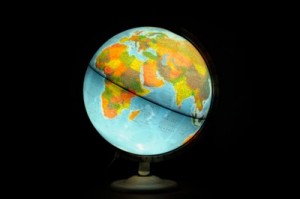
“In these days of economic uncertainty, businesses ought to make better use of recent research into the experience economy”
The sentence above opens a new article in ScienceNordic.com by ISE researchers Jon Sundbo and Flemming Sørensen which takes its point of departure in the new Handbook in the Experience Economy.
Read the article at ScienceNordic.com here: Experience economy brimming with potential
One major point seems to be that many have not really realized that we today in the so-called developed world live in an experience economy. And the knowledge that we do has a great potential of leading us to more beneficial ways of doing business.
Since this economy is substantially different from the economies that have been before, the ways to deal with it from companies and policy makers may be very different as well.
Individualization and co-creation
Co-creation, the notion that consumers should be more involved in creating the products they want to use, can be seen as a form of design adaptation in which consumers are involved in the development and the production of new products and services.
While consumers have traditionally been regarded as passive, the modern notion of co-creation is particularly important in the experience economy, since the users have individual wants and needs for experiences and even very different definitions of what constitutes an experience.
Does a lack of understanding of the experience economy worsen the crisis?
Some critics have seen experience economy as a whole as something a little fluffy; some have even called the ideas and models of improving the products and services in it of being a sort of “Disneyfication” – making us all and everything we do into cartoon characters, just here for the fun of it.
One of the points that is made in the article at ScienceNordic.com is that it is not all about entertainment. It is about exploring the new possibilities in a new and different economic reality. This may help businesses and societies to get out of the financial crisis.
However, a related question to be explored further could be how this experience economy and the economic crisis is and is not linked to the societies in our globalizing world that have not (yet) passed on to the experience economy – the societies that one could say not yet are rich enough to be based primarily on experiences.
Read the complete article about the possibilities in the experience economy at SceienceNordic.com here: Experience economy brimming with potential
or the Danish (original) version at Videnskab.dk here: Oplevelsesøkonomien bugner af uudnyttet potentiale
